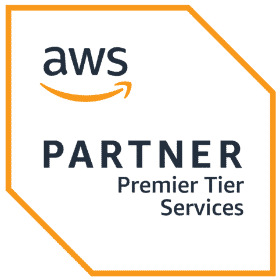7 Easy Ways To Boost Your Digital Literacy

No industry will be left untouched by the wave of digital transformation that's taking place. Everyday tasks and communications will increasingly involve digital tools. Learning (whether workplace learning or full-time education) will increasingly harness digital tools. Intelligent machines – which could encompass robots, software, AIs, sensors, and who knows what else in the future – will increasingly become part of every workplace, from factories to law firms. In short, everyone's jobs will change, to one degree or another.
This means we all need to be confident working alongside digital tools and able to interact with technologies with ease. This, in a nutshell, is what we mean by digital literacy. It’s having the skills needed to learn, work, and navigate life in our increasingly digital world.
Basic digital literacy means being able to:
· Use digital devices, software, and applications with confidence.
· Communicate, collaborate and share information with others via digital tools like Google Docs or Zoom.
· Handle data in an appropriate, effective and secure way.
Here are seven ways to build your digital literacy.
1. Start by considering the impact that this digital revolution might have on your workplace and your job. For many, it will mean that easily repeatable tasks become automated as the division of labor between humans and machines shifts. Consider which parts of your job could potentially be automated in the future and how this might impact your role (for example, freeing you up to focus on value-adding tasks that you currently struggle to make time for).
2. Then, look at the basic skills outlined above and assess whether there are any gaps in your knowledge. If you need to beef up your digital skills, depending on where you are in the world, there should be some useful government or institutional learning resources. A great example in the UK comes from the Open University, which has a free course called “Digital skills: succeeding in a digital world,” designed to help people develop the confidence and skills for life online.
3. Going beyond the basics, you’ll want to keep abreast of new technologies and digital trends, such as AI and the metaverse. You don’t need to become a tech expert to thrive in the digital world, but you will need to stay in the loop on what’s coming down the line. How you keep abreast of these trends will depend on your preferred way of learning new things. For example, there are resources like WIRED magazine and the GeekSpeak podcast. There’s also my own website (bernardmarr.com) and my YouTube channel, which is great for bite-size content.
4. Encourage your employer to invest in digital literacy training and support. This will be a harder task at some companies than others, but try to sell the positive benefits that come with enhanced digital skills – including improved productivity and performance.
5. Focus on the value and benefits of new technologies to you personally. So, rather than approach new technologies from a place of fear, try asking yourself, “How will this help me do a better job and achieve my personal and professional goals?"
6. Don’t buy into the narrative that “robots are coming for all our jobs.” Yes, many millions of jobs will become obsolete due to automation. But the number of new jobs created will outweigh those lost. To put this in numbers, the World Economic Forum estimates that 85 million jobs may be displaced by 2025 as the division of labor shifts from humans to machines, but, crucially, 97 million new roles will emerge that are more suited to this new division of labor. In my mind, being positive about new technologies is an important (and overlooked) part of digital literacy, so ignore those negative headlines.
7. Think of yourself as a "lifelong learner." For me, this is probably the most important item on this list. We know that the digital transformation will alter the majority of jobs and make some jobs obsolete. And that constant change will be the new norm for most organizations. In this environment, digital skills will quickly grow stale and need refreshing. In other words, it's not a case of acquiring digital skills, and then you're done. It requires an ongoing commitment. Luckily, there are so many flexible ways to learn these days, including online courses, video tutorials, audiobooks, and more. It’s never been easier to be a lifelong learner.
Read more about digital literacy and other essential skills in my new book, Future Skills: The 20 Skills & Competencies Everyone Needs To Succeed In A Digital World. Written for anyone who wants to surf the wave of digital transformation – rather than be drowned by it – the book explores why these vital future skills matter and how to develop them.


